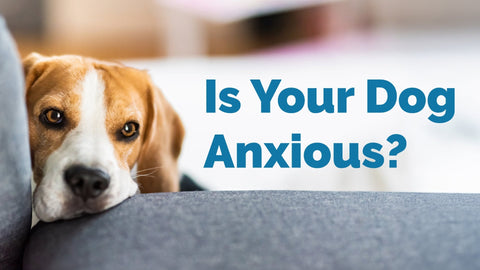

Discover the Benefits of Pets and Mental Health
How can pets improve mental health and well-being?
Pets boost our mental health by providing companionship, reducing loneliness, and encouraging daily activity. Their unconditional love eases stress, offers a sense of purpose, and lifts our spirits—especially when we spend time outdoors together, which can strengthen emotional well-being.
When we talk about emotional support, pets are wonderful companions. A cat cuddled up on your lap or a dog happily greeting you can really brighten your day. Our furry friends greatly improve our mental health and contribute positively to overall human health. Studies show that having these companion animals helps us feel better. Let’s look deeper into the strong connection between people and pets and how it heals us from within.
The Science Behind the Pet-Human Bond
Research shows that being with animals can improve our mood. When we spend time with them, our brains release feel-good chemicals like serotonin, dopamine, and oxytocin. These chemicals help us deal with stress, anxiety, and depression. Just petting a dog or cat can also lower cortisol levels. This hormone is linked to stress and can help lower blood pressure.
Many studies show that pet owners feel less lonely. A pet gives us friendship and love all the time. This is very important for our emotional strength and sense of security and safety. For people dealing with trauma or mental health issues, pets can give a type of comfort that medicine or therapy may not provide.
Key emotional benefits of pet ownership include:
-
Less stress and anxiety
-
More happiness and calm
-
A stronger sense of purpose and routine
-
Better social connections and less loneliness
-
Emotional support during tough times
Pets Help Establish Healthy Routines
Routine is important for keeping good mental health. Pets can help us create a daily plan that includes activities like daily walks. Simple tasks like feeding, walking, grooming, and playing are what pets enjoy. Because pets do well with routine, they can support us in sticking to a schedule. This is a great way to bring stability into our lives and can help alleviate symptoms of anxiety.
Having a purpose every day can really help people who feel sad, anxious, or deal with other mood problems. Knowing that an animal needs you gives you a reason to feel good and feel responsible, even in tough times. This also helps you stay active, enjoy the outdoors, and connect with others, like chatting at the dog park!
How pets promote healthy habits:
-
Food times in the morning and evening
-
Encouraging physical activity, especially for dogs
-
Offering gentle reminders for self-care while aiding others
-
Establishing bedtime routines
-
Setting aside time for play, fun, and relaxation
Pets Reduce Feelings of Loneliness
Pets can truly help when you feel lonely. It doesn’t matter if you live by yourself or if you are having a tough time. They give you comfort and help you keep a routine. Having a kind of pet around can lessen feelings of being alone. This is especially useful during big changes in your life or when you feel down.
Pets don’t only listen to you; they also focus on you without judging or giving advice. Their unconditional love and presence give you a special type of emotional support. This support is there for you all the time, and you don't need to book an appointment to feel it.
Ways pets ease loneliness:
-
Being with you every day
-
Showing love by cuddling, napping in your lap, or being close to you
-
Giving you a sense of purpose by having something to take care of
-
Bringing fun and activities to quiet times
-
Helping you keep to a routine and feel more motivated
articleproducts1
Pets Foster Connection and Community
Pets are great for making friends and meeting new people. When you go to a dog park, a pet store, or just take a walk, pets can start conversations. They help pet parents connect with others easily, even if they usually wouldn’t talk.
Pets can be great for people who feel anxious in social situations or feel alone. They can help you make friends and connect with others in your community by alleviating some signs of anxiety in various settings.
Pets help people connect by:
-
Chat with other pet parents in small conversations
-
Attend events and meetups where pets are welcome
-
Share posts about pets on social media to connect with others
-
Make therapy and support groups feel friendly and welcoming
-
Help others feel more comfortable in social settings
Pets Support Resilience and Recovery
Life can be hard sometimes, but pets can make us feel better. If you are going through a breakup, dealing with illness, or struggling with mental health, a pet needs care. Their unconditional love can provide comfort and support.
Caring for a pet can contribute to healthy aging by making people feel stronger. It keeps them busy and motivated each day. This gives them a sense of purpose. A pet can help prevent destructive behavior during hard times and can be helpful when healing from trauma, dealing with loss, or managing stress.
How pets contribute to resilience:
-
A reason to wake up and keep moving
-
A way to feel easy without stress or demands
-
Helping people feel important and valued
-
Lessening feelings of loneliness while recovering
-
Promoting small daily wins and habits
Pets and Children's Mental Health in Special Education
Children with special needs, including those with autism spectrum disorder, can have special challenges. These challenges often show up in areas like social skills, emotions, and thinking. Bringing pets into the classroom, like guinea pigs or therapy animals, can really help. These pets can make kids feel calmer. They also help kids feel more connected and boost their confidence.
Having pets can make kids with autism feel less anxious. Pets can also help improve their social skills and communication. For children with ADHD or learning differences, pets can provide calming support. They may help these kids focus better and express their feelings more easily.
Therapeutic benefits for children in special education can include many positive outcomes. These benefits help improve their emotional, social, and physical development.
Some of the main therapeutic benefits are:
-
Better communication skills
-
Improved social skills
-
Increased confidence
-
Stress relief
-
A sense of achievement
-
Enhanced focus
-
A more positive attitude
These benefits can play a big role in helping children feel more successful and happy in their daily lives.
-
Help people feel their emotions and feel calm.
-
Promote understanding, patience, and being responsible.
-
Encourage social connections without judging anyone.
-
Raise confidence through good interactions.
-
Build a safe and happy space in classrooms.
Pets as Companions for Remote Workers
Working from home has several advantages. However, it can feel lonely or boring at times. Pets can bring joy and help create a routine. They encourage movement for people working remotely. Pets are good companions and provide mental health benefits. These benefits can help lessen feelings of burnout.
Taking breaks to play, walk, or cuddle with a pet can improve your work and boost your mood. Pets help people who work from home find a good balance between work and life. Those cute puppy-dog eyes remind you to close the laptop and go outside.
How pets help remote workers thrive:
-
Stay close during work hours
-
Support breaks away from screens and encourage moving around
-
Assist in handling stress and ease feelings of being overwhelmed
-
Offer help during online meetings or when tasks are busy
-
Support a healthy daily routine
articleproducts2
Emotional Support Animals and Therapy Pets
Having a pet can be good for mental health. Emotional support animals (ESAs) and therapy pets have special abilities to help us feel better. You can see these animals in hospitals, nursing homes, or counseling offices. They give comfort and help people feel connected during tough times.
Therapy animals are trained to be calm and friendly. They can feel how people feel. On the other hand, emotional support animals (ESAs) do not need special training. A licensed mental health professional must prescribe them. This helps people manage a mental health condition.
Benefits of emotional support and therapy animals:
-
Reducing signs of PTSD, anxiety, and depression
-
Improving communication and trust during therapy sessions
-
Assisting children and older adults with social or thinking challenges
-
Offering a calming presence when things feel stressful
Unconditional Love
One of the greatest gifts pets provide us is their unconditional love. They never judge us or disrupt our thoughts. They don’t say to feel better. Instead, they simply come close and offer their comforting presence. This acceptance can be very healing for many pet parents.
Pets help us appreciate the present. Their playful behavior, funny tricks, and need for affection encourage us to pause and treasure the small joys in life. When we feel down or stressed, having pets nearby—always loyal and friendly—can really lift our spirits.
Pets and Mental Health: Final Thoughts
In conclusion, our bond with pets is about more than just companionship. It can feel like a lifeline when we have mental health issues, similar to the bond with a family member, as they are often considered part of their family. When we spend time with these amazing animals, we find healing ways we might otherwise miss. A wagging tail or a soft purr can remind us of our strength and show us that we are never alone. Adding therapy animals and emotional support pets into mental health care is important for many people. Their special skills help us connect better, support healing, and inspire meaningful interactions.
articlebanners1




